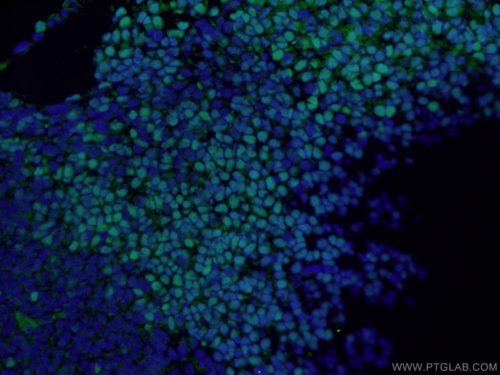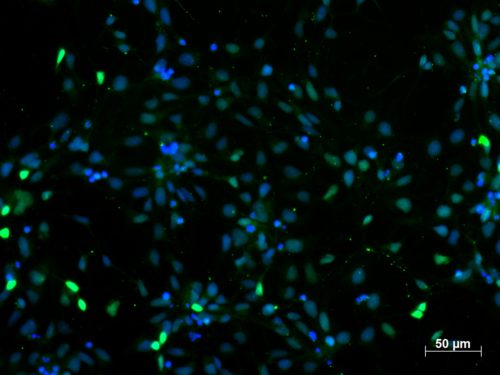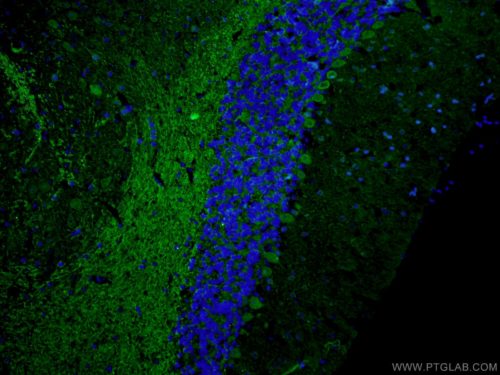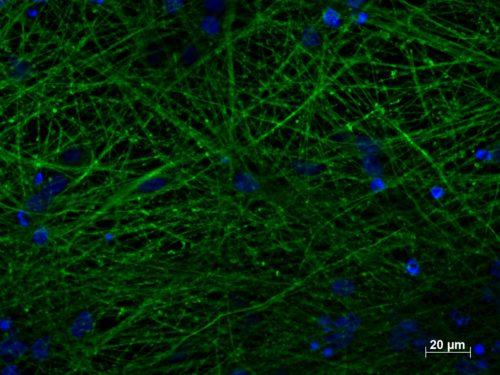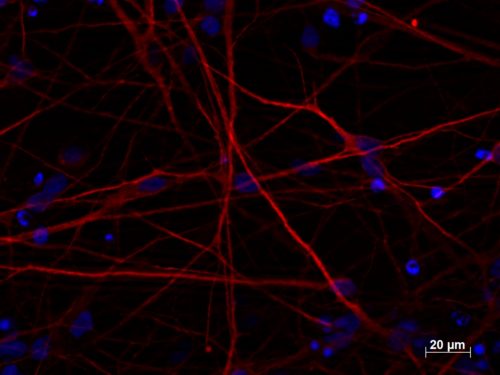What are neural stem cells (NSCs), neural progenitors, and neural precursors (NPCs)?
Neural stem cells (NSCs) are undifferentiated neural cells with the capacity for long-term self-renewal and for differentiation into all types of neuronal and glial cells. They play a crucial role in shaping the nervous system during development but are also important in adulthood.
A subset of NSCs is present in the developed nervous system and acts as a reservoir of cells for cell replacement and nervous tissue regeneration (PMID: 20110496). Symmetric division of NSCs maintains the population of undifferentiated NSCs, while asymmetric division gives rise to neural progenitors. Neural progenitors are precursor cells able to further differentiate into various neuronal and glial cells. However, unlike NSCs, they have limited life time and are not able to self-renew. NSCs and neural progenitors are often regarded as neural precursors (NPCs). Adult NPCs are particularly enriched in the subventricular zone, in the dentate gyrus, and potentially also in the hypothalamus.

